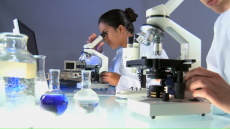

What it’s like to study a Life Science Degree?
What is a life science degree?
Life science degrees cover a wide range of biology, like biochemistry, microbiology, biomedical science, virology and more. The reason for there being so many degree options is simply the fact that biology is so vast, and is forever expanding, that it requires specialising into certain areas to grasp a good amount of knowledge. It also allows for you to do more modules which you find interesting within biology. Whether you prefer viruses, bacteria, molecular biology, humans, animals or plants, there is a perfect life science degree available. Even when choosing a degree, many universities will offer the opportunity to enrol to modules outside of where you specialise. So if you choose to do biochemistry for example, you may also be able to do a biomedical science degree. Most degrees will teach core modules that are necessary for biological degrees, then as you progress into the course more, the options available become plentiful! Although it’s all biology, modules can vary and that makes it very exciting! It’ll help you to realise what parts of biology you love most, and see if you want to continue with post graduate studies.
Is the degree right for you?
Doing a biological degree is quite different to scientific studies whilst at school. There are far more opportunities and you really get to see the theory come to life. Whilst universities have grade requirements, it is not all about the grades. The degree is hard work, that demands a good amount of time in order to remember and understand the content. That’s not to put you off, as a lot of the content is interesting and relevant to our lives.
Jump from A levels
It’s no surprise that a biological degree is harder and more in depth than A level Biology. But unlike your A levels, you only study biology. As all your time is dedicated to it, it becomes easier to go through more content in a shorter space of time. The detail is what makes it so exciting. Rather than just being told what seems an irrelevant fact, the topics fully explain ideas, from how they were discovered, to what they actually are, and whether you can test it experimentally. And that is probably the biggest difference, learning using experiments really helps with active learning. Many topics will build on what you have already learnt and it will make you feel like A levels were a breeze!
Laboratories and coursework
As well as examinations, coursework will count towards your final grade. Some people like this as it reduces the pressure put on exams. Laboratory work is often performed in pairs, and sometimes groups. This means you can discuss what you are doing with your partner, with demonstrators, and with your professor. It is a perfect time to learn and interact with people on your course. You will then be asked to write a report, don’t worry, your university will explain how to write one! Laboratory reports are not like any work you have ever done at school and they really teach you how to write like a scientist!
Exams
Exam styles will differ from university to university, and different modules can have different weightings. This can include multiple choice, short answer questions and essay questions. Modules are examined separately. Unlike A levels, you have less time to learn everything, and there is a lot to learn. So it is important to focus on key concepts, making sure you understand mechanisms and processes.
Image- https://footage.framepool.com/en/shot/580787003-vaccination-analysing-technician-microscope

0 Comment:
Be the first one to comment on this article.